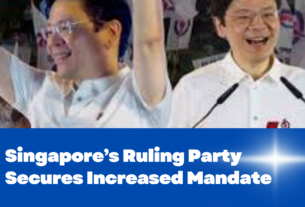Prime Minister Keir Starmer is under intense political pressure after unveiling a hardline immigration reform plan that has triggered backlash from within his own Labour Party and among immigrant communities across the UK.
The new policy proposals aim to sharply reduce net migration a central pledge of the Labour government’s post-election platform. Key reforms include tougher visa criteria, stricter English proficiency tests, and extended residency requirements before foreign nationals can apply for permanent settlement.
“Britain must regain control over its borders,” Starmer said in Parliament on Tuesday. “We welcome those who contribute but the system must be fair, firm, and focused on national interest.”
But the rhetoric and the policies have alarmed many, drawing comparisons to Enoch Powell’s infamous 1968 “Rivers of Blood” speech, a historical flashpoint in Britain’s immigration discourse. Labour MPs of South Asian and Caribbean descent have condemned the proposals, warning of a growing disconnect between the party’s leadership and its multicultural base.
“This is a betrayal of Labour’s legacy as a champion of inclusion and opportunity,” said MP Tanika Desai, adding that the policy would “alienate working-class immigrant families who have built this country.”
Outside Westminster, community leaders and advocacy groups also raised concerns. The Migrants’ Rights Network issued a statement calling the reforms “xenophobic in tone and regressive in substance.”
Business leaders and universities have expressed unease, fearing the crackdown may harm the UK’s competitiveness. “International talent is critical to our innovation economy,” said Oxford economist Rajesh Patel. “We risk turning away the very people driving growth and discovery.”
Meanwhile, right-wing commentators and opposition Tories have accused Starmer of “political opportunism,” claiming the measures mirror past Conservative proposals that Labour once denounced.
Despite the backlash, Downing Street has signaled no plans to revise the draft legislation, which will be introduced to Parliament in June.
The political fallout may further complicate Starmer’s efforts to solidify public trust ahead of next year’s local elections. Polls released Wednesday show a slight dip in Labour’s approval among urban voters, though support in key swing regions remains stable.




